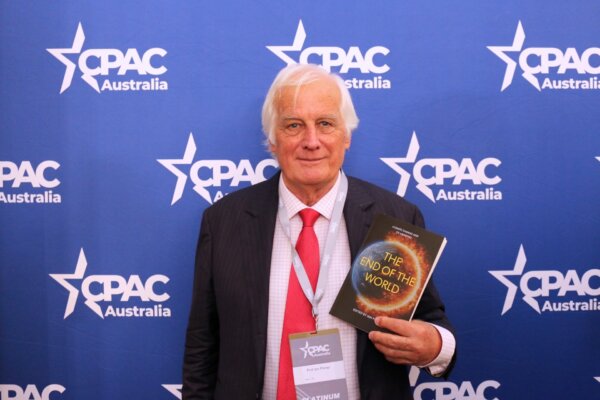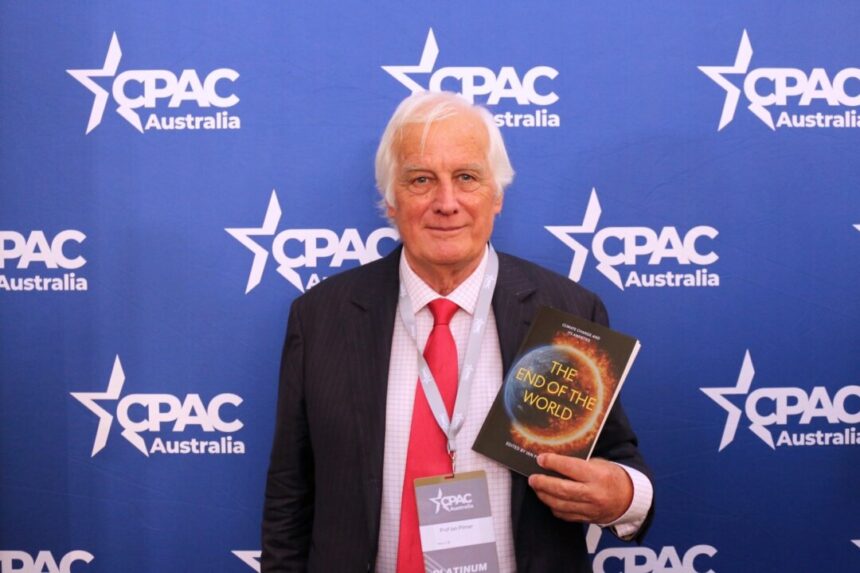
‘We have now a whole generation of kids who are absolutely terrified of the future,’ Plimer said at event to promote new book, ‘The End of the World.’
Renowned for his dissenting views on climate change, professor emeritus Ian Plimer explains his reasons for challenging the prevailing scientific consensus.
Speaking at the CPAC Australia conference in Brisbane on Oct. 5, Plimer introduced his latest book, “The End of the World,” co-authored by seven experts, which delves into the impact of climate change alarmism on children.
Plimer expressed concerns about the emotional distress experienced by children due to the constant narrative of a looming climate crisis they are exposed to from an early age.
He criticized the education system for instilling fear and guilt in children about their role in environmental degradation, labeling it as a form of child abuse.
Plimer highlighted the long-term consequences of this fear-induced education, noting that many young adults are now opting not to have children due to climate anxiety.
As a geologist and passionate educator, Plimer underscored the crisis in critical thinking skills among today’s youth, attributing it to the dominance of leftist ideology in educational institutions.
He emphasized that the current activism surrounding climate change is a threat to freedom, as it aims to create a compliant and unquestioning generation.
Plimer defended his position by citing centuries of scientific evidence from Earth’s geological history, arguing against the doomsday predictions perpetuated by climate activists.
Despite facing backlash for his contrarian views, Plimer believes that there is a growing shift in public awareness and a renewed interest in seeking alternative sources of information.
He urged for a return to practical and sustainable energy solutions to alleviate the unfounded fears propagated by climate alarmism.
Climate Changes
Plimer’s books aim to highlight the vast body of scientific knowledge often overlooked in mainstream discourse.
He explained the fundamental drivers of climate change, emphasizing the role of solar activity and orbital variations in shaping Earth’s climate over time.
Responding to criticism about his credentials as a climate scientist, Plimer defended his expertise as a geologist with a comprehensive understanding of climatic processes.
Plimer’s latest book builds upon his previous works targeted at educating children about climate issues, encouraging critical thinking and challenging misconceptions.
From addressing the carbon cycle to questioning moral dilemmas related to technology consumption, Plimer’s books aim to engage young readers in thoughtful discussions about environmental issues.
Ultimately, Plimer underscores the importance of gratitude for the current state of the world and the need to approach environmental challenges with rationality and informed decision-making.
Can you please rewrite this sentence?
Source link





